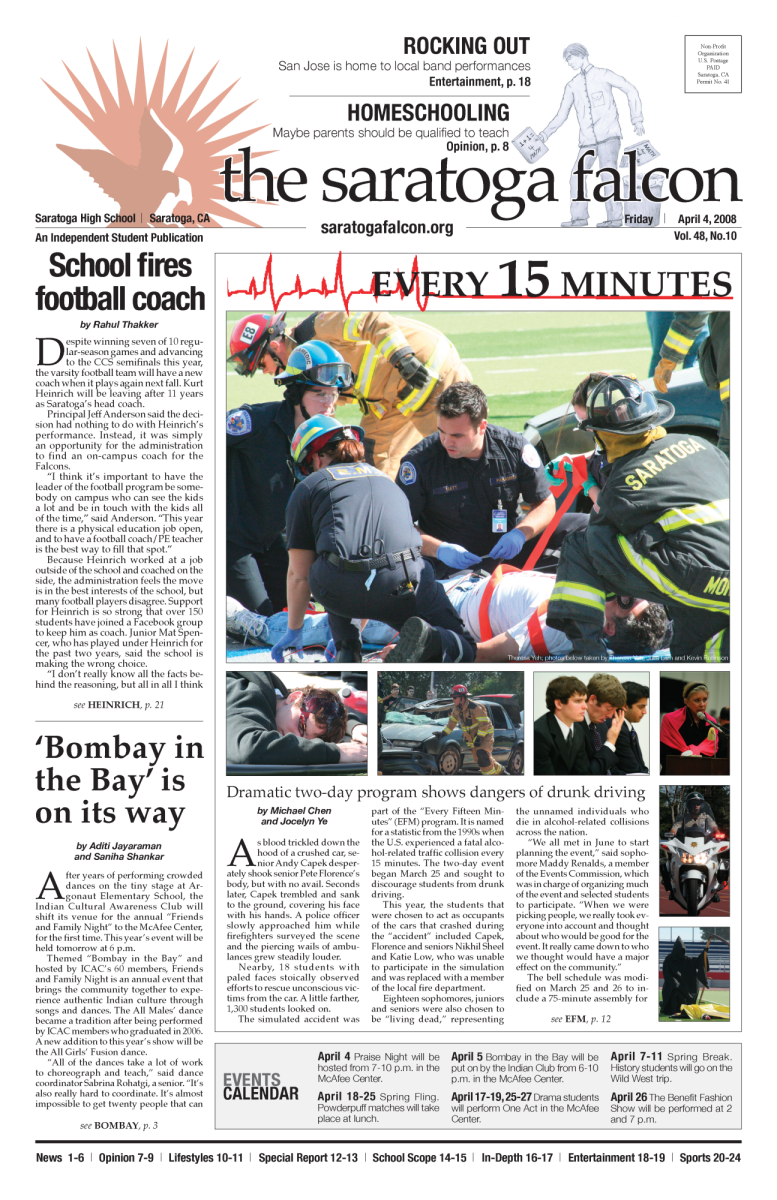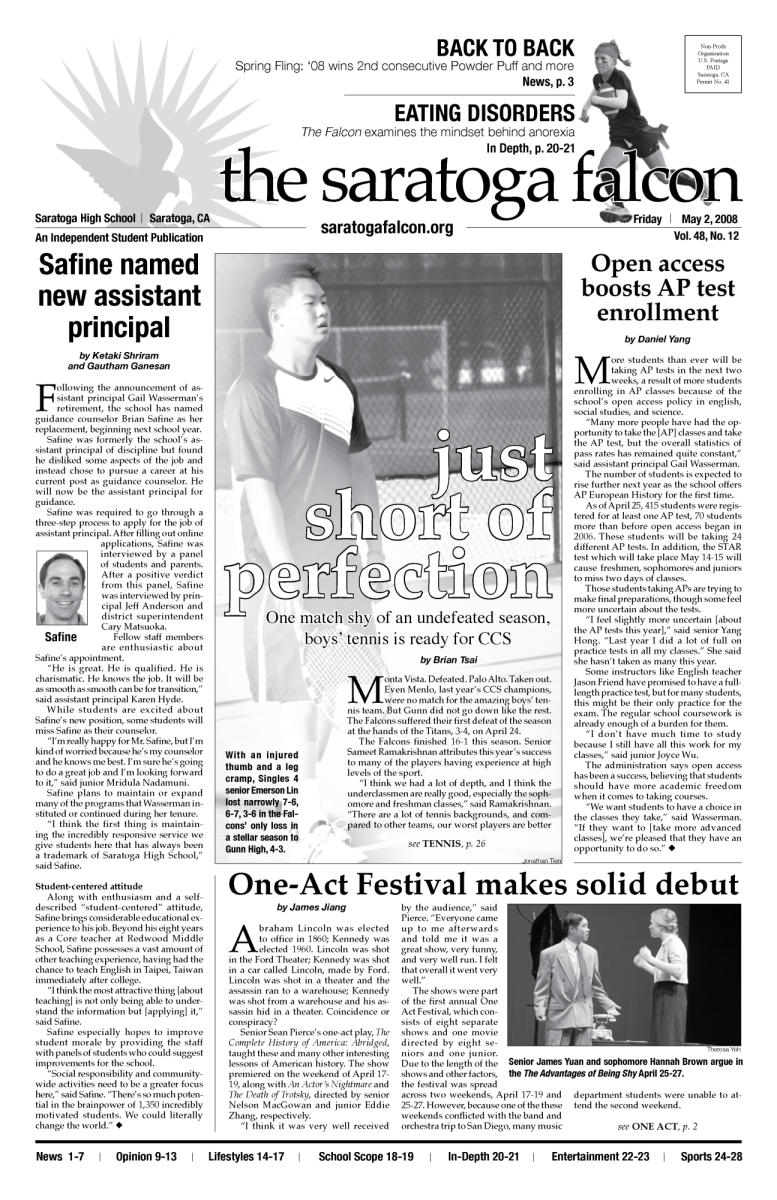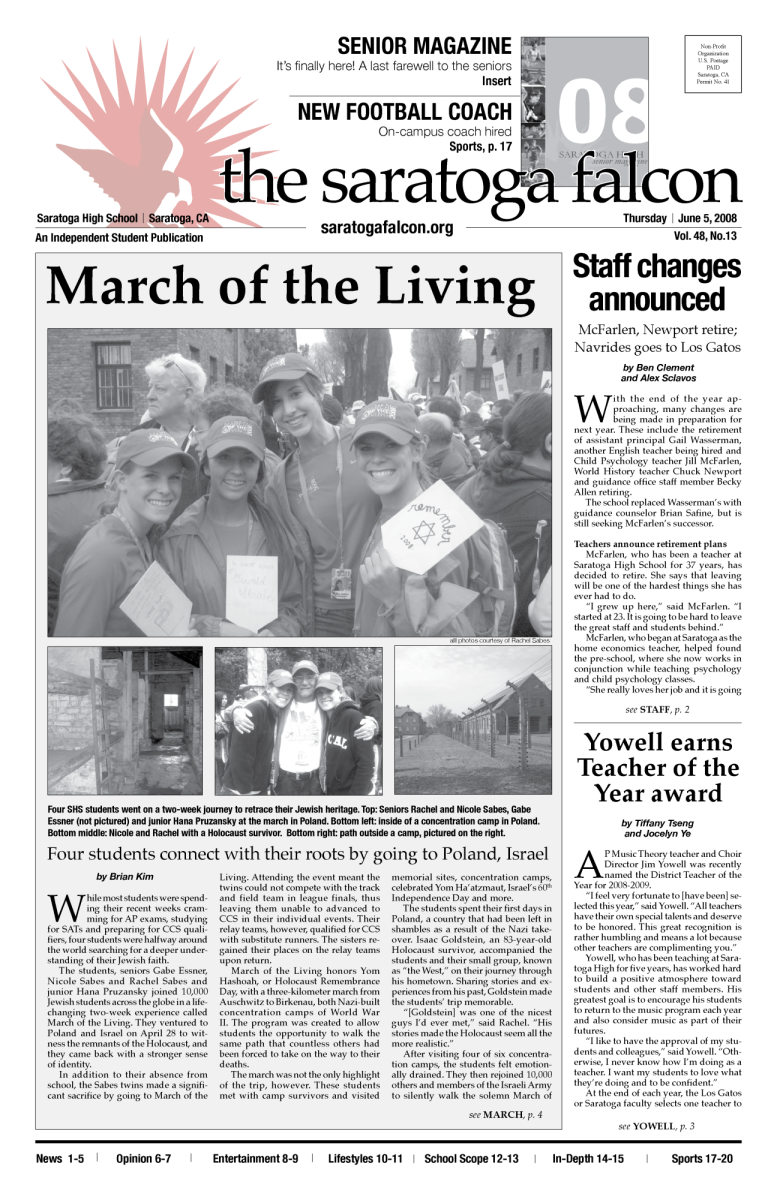After the riveting cliffhanger of “White Collar” Season 5 finale left us sitting speechless before the TV screen, we waited anxiously for 10 months for the next episode. We were totally prepared to cast aside our college apps to find out what happened to the protagonist when he was abducted.
“White Collar” follows Neal Caffrey, a conman who serves his jail sentence by working for the FBI as a criminal informant under Peter Burke, his FBI handler. Together, they catch white collar criminals.
We eagerly tuned in to watch Season 6, and after seeing the finale, which aired Dec. 18, we can agree that it was satisfying but did not live up to its full potential.
(Warning: Spoilers ahead.)
The most obvious drawback of the final season was perhaps the small number of episodes: a mere six rather than the usual 16. This was because of the high expenses of filming in New York City, and with only six episodes, the writers did not have time to develop a new and worthy antagonist to present a final challenge to Neal and Peter.
Instead, they recycle an old antagonist, Matthew Keller, who has already reappeared several times throughout the show. Since viewers are already accustomed to Keller’s deceitful nature, his ultimate betrayal was predictable.
Furthermore, while the final nemesis should be the most difficult to outsmart, Keller still fails to live up to Vincent Adler, the antagonist from Season 2. Keller had no character development, leaving us desiring more originality. At the very least, the writers could have added new dimensions to Keller’s character, perhaps even making him sympathetic and not just a black and white bad guy.
Neal leaving New York for Paris in the final episode also seemed contrary to his characterization in previous seasons. Although the first season of the show mentioned that Neal’s dream was to explore Paris, mostly to be with his then-girlfriend Kate, Seasons 3 through 6 firmly establish that Neal now considers New York City his home. In fact, even after escaping to Cape Verde at the end of Season 3 to live a luxurious life, Neal finds himself wanting to return to New York.
Furthermore, while Neal needed to fake his death to throw off the Pink Panthers, a powerful, vengeful group of criminals whom he betrayed, it seems excessively cruel to let his loved ones believe he was dead for a whole year.
It would have been ideal to see Neal reuniting with his “family” in New York sooner after his fake death. The writers also could have left the ending more ambiguous rather than heavily implying that Neal returns to a life of crime; the show spent several seasons suggesting that Neal wants to leave the criminal life behind, but the finale contradicts the development. The writers seem to be indicating that criminals will always be criminals, which isn’t the best take-away.
That’s not to say that the final season didn’t have good points. There were nice touches, like Peter and Mozzie having a companionable meal together without Neal’s presence, and Peter and Elizabeth naming their baby boy Neal.
The writers also didn’t leave any major plot holes, except the question of what specifically happened to the $23 million Mozzie and Neal stole from the Pink Panthers.
Lastly, the biggest twist in the final episode, Neal faking his death, was cliche but suitable; it was Neal Caffrey’s greatest and “last” con. Compared to the numerous other shows, such as “House” and “Dexter,” which have poorly executed the idea of the protagonist faking his/her death at the show’s end, “White Collar” did an outstanding job; it gave realistic, plausible explanations as to how Neal appeared to die.
For viewers who didn’t catch the foreshadowing (Neal shooting a bullet at a mannequin in his rented self-storage container), seeing Mozzie, who was always able to understand Neal’s thought-process, move past denial and accept Neal’s “death” was convincing and heartbreaking. Then, when we learned that Neal is, in fact, alive, we realize that Neal is truly, at long last, free.
Following Neal’s journey of juggling his conman and reformed criminal sides has been an exciting rollercoaster, and we will miss anticipating Neal’s next adventure. As Mozzie says, “If you want a happy ending, that depends, of course, on where you stop your story.” For us, Neal’s story ended all too soon, and although the ending wasn’t perfect, it was fulfilling.



























